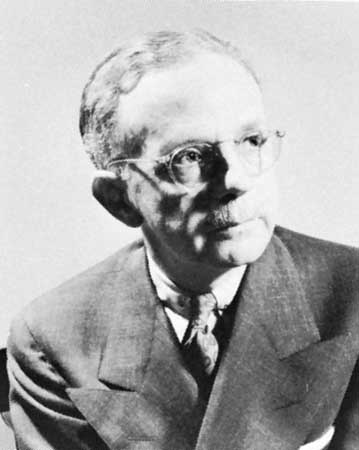White, Walter
American civil-rights activist
in full Walter Francis White
born July 1, 1893, Atlanta, Ga., U.S.
died March 21, 1955, New York, N.Y.
 foremost spokesman for African Americans for almost a quarter of a century and executive secretary (1931–55) of the National Association for the Advancement of Colored People (NAACP) (National Association for the Advancement of Colored People). He waged a long and ultimately successful campaign (civil rights movement) against the lynching of blacks by white mobs in the United States.
foremost spokesman for African Americans for almost a quarter of a century and executive secretary (1931–55) of the National Association for the Advancement of Colored People (NAACP) (National Association for the Advancement of Colored People). He waged a long and ultimately successful campaign (civil rights movement) against the lynching of blacks by white mobs in the United States.Despite his blond hair and blue eyes, denoting that only a fraction of his ancestry was African American, White chose to go through life as a black. At age 25 he joined the NAACP national staff as assistant executive secretary under James Weldon Johnson (Johnson, James Weldon), whom he succeeded as executive secretary. White's principal objective became the abolition of lynching. Aided by his fair skin, he made on-the-spot investigations of lynchings and race riots and conducted a vigorous, sustained drive for enactment of a federal antilynching law. Although no such law was enacted, the climate of public opinion was markedly changed by his investigations and exposés. In 1918, when he joined the NAACP staff, 67 persons, all but 4 of them blacks, were lynched. In the year of his death, 1955, there were only three recorded lynchings, and none had occurred in the five previous years. Lynchings had become a rarity and were soon to disappear from the American scene.
In an early assault on discrimination in voting rights, White in 1930 almost single-handedly succeeded in influencing the U.S. Senate to reject by a 41–39 vote President Herbert Hoover's nomination of Judge John J. Parker of North Carolina for appointment to the U.S. Supreme Court. (Parker was on record as being opposed to black suffrage.) At the outbreak of World War II, White assisted labour leader A. Philip Randolph (Randolph, A. Philip) in pressing for a U.S. Fair Employment Practices Committee (June 1941) that would act to ban discrimination in government and wartime industry.
White's writings include two fictionalized accounts of a Southern lynching: The Fire in the Flint (1924) and Rope and Faggot: A Biography of Judge Lynch (1929). His autobiography, A Man Called White, was published in 1948.